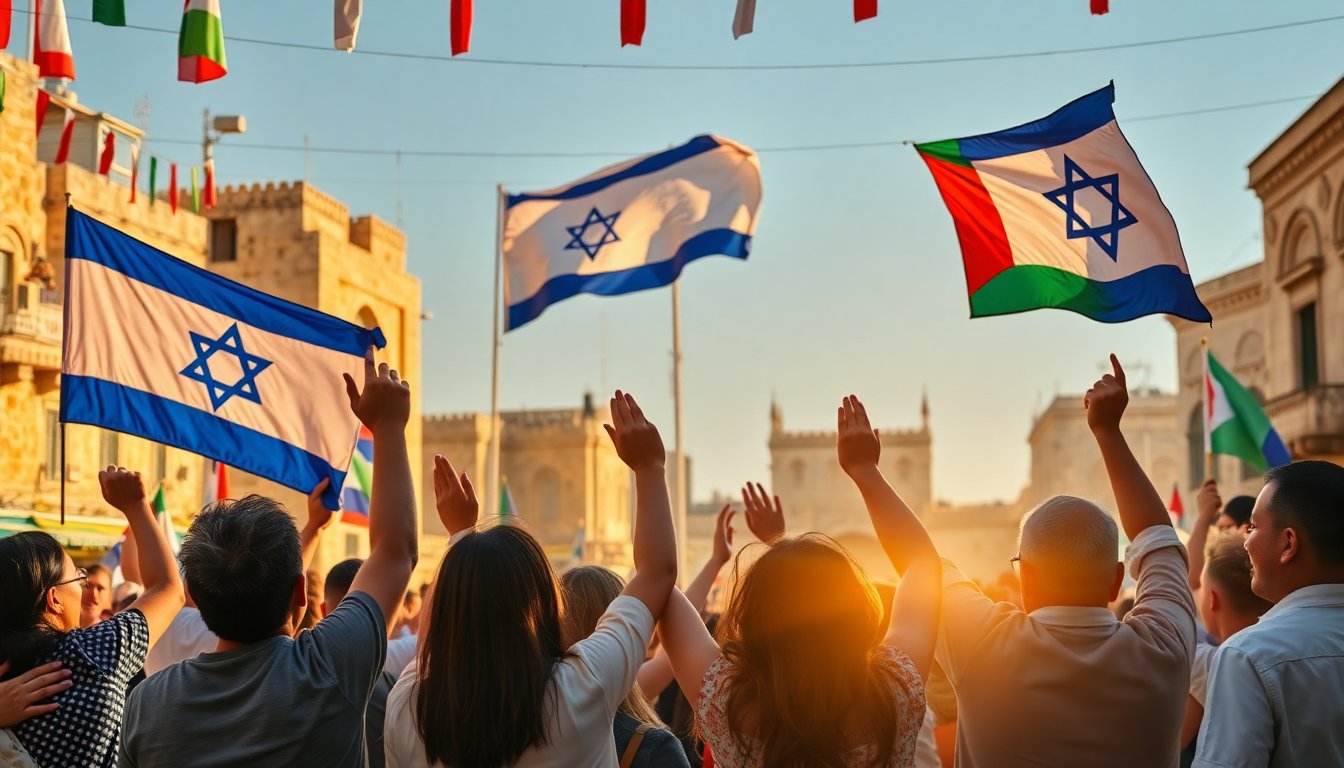Table of Contents
In a significant development for the Middle East, President Donald Trump addressed an assembly of global leaders and officials, heralding what he referred to as the dawn of a new era. The atmosphere was charged with emotion as families on both sides celebrated the release of hostages and prisoners, marking a pivotal step toward potential peace.
Celebrations and mixed sentiments arise from the peace agreement
The culmination of intense negotiations led to the release of all living Israeli hostages, bringing joy and relief to their families. Concurrently, nearly 2,000 Palestinian prisoners were freed, igniting celebrations among Palestinians. This exchange has been described as a significant moment of victory for humanity, reflecting the profound emotional impact of these developments on both communities.
Global leaders react to the historic agreement
Canadian Prime Minister Mark Carney described the recent diplomatic meeting as a significant step towards achieving stability in the Middle East. He stressed the pressing need for effective humanitarian aid to reach those impacted by the ongoing conflict, especially in Gaza. Carney’s remarks resonated with many summit attendees, who acknowledged the potential of this agreement to act as a foundation for enduring peace.
During the conclusion of his speech, former President Trump mistakenly referred to Carney as president while expressing gratitude to various leaders. Despite this slip, the emphasis remained on the broader implications of the negotiations and the necessity for a comprehensive strategy for peace.
The complexities of achieving lasting peace
Despite the optimism surrounding the recent hostage and prisoner exchanges, concerns persist regarding the sustainability of the peace plan. Nader Hashemi, a professor of Middle Eastern politics at Georgetown University, expressed skepticism about the durability of the agreement. He characterized it as a temporary cessation of violence rather than a definitive solution. Hashemi noted that the plan appears to prioritize Israeli interests, with minimal input from Palestinian representatives.
Assessing the framework of Trump’s peace initiative
Hashemi characterized the peace plan as a potential “negative peace,” suggesting it reflects an absence of conflict without addressing the underlying issues. The agreement notably omits significant factors such as the expansion of Israeli settlements in the West Bank, a contentious issue that continues to obstruct the pursuit of a two-state solution. Although the recent exchanges of hostages and prisoners are positive developments, they do not resolve the broader, enduring conflict.
In his statements, Trump suggested future financial aid for Gaza, although specifics were not provided. He stressed the importance of demilitarization for any reconstruction efforts, arguing that funds should not be used to support hatred or violence. Trump’s vision for the Middle East included guarantees that a third world war would not erupt in the region.
Looking ahead: Next steps in the peace process
In the aftermath of a historic day, the international community faces the challenge of defining the next steps toward lasting peace. Experts emphasize the need for caution, noting that without a comprehensive framework and genuine collaboration between both parties, the ceasefire may only serve as a temporary pause. It is crucial that the perspectives of those directly affected by the conflict are included in future discussions to facilitate a fair and just resolution.
The families of released hostages express a blend of relief and hope as they reunite with their loved ones. Similarly, Palestinian families celebrate the return of their relatives. This dual sense of victory underscores the complex emotions surrounding the peace process, emphasizing the urgent need for ongoing dialogue and mutual understanding.
Recent events represent a significant milestone in the pursuit of peace in the Middle East. However, the journey ahead is filled with obstacles. Engaging with the underlying issues of the Israeli-Palestinian conflict is now more critical than ever. Global attention remains fixed on leaders as they navigate these complex dynamics in search of a sustainable future.


